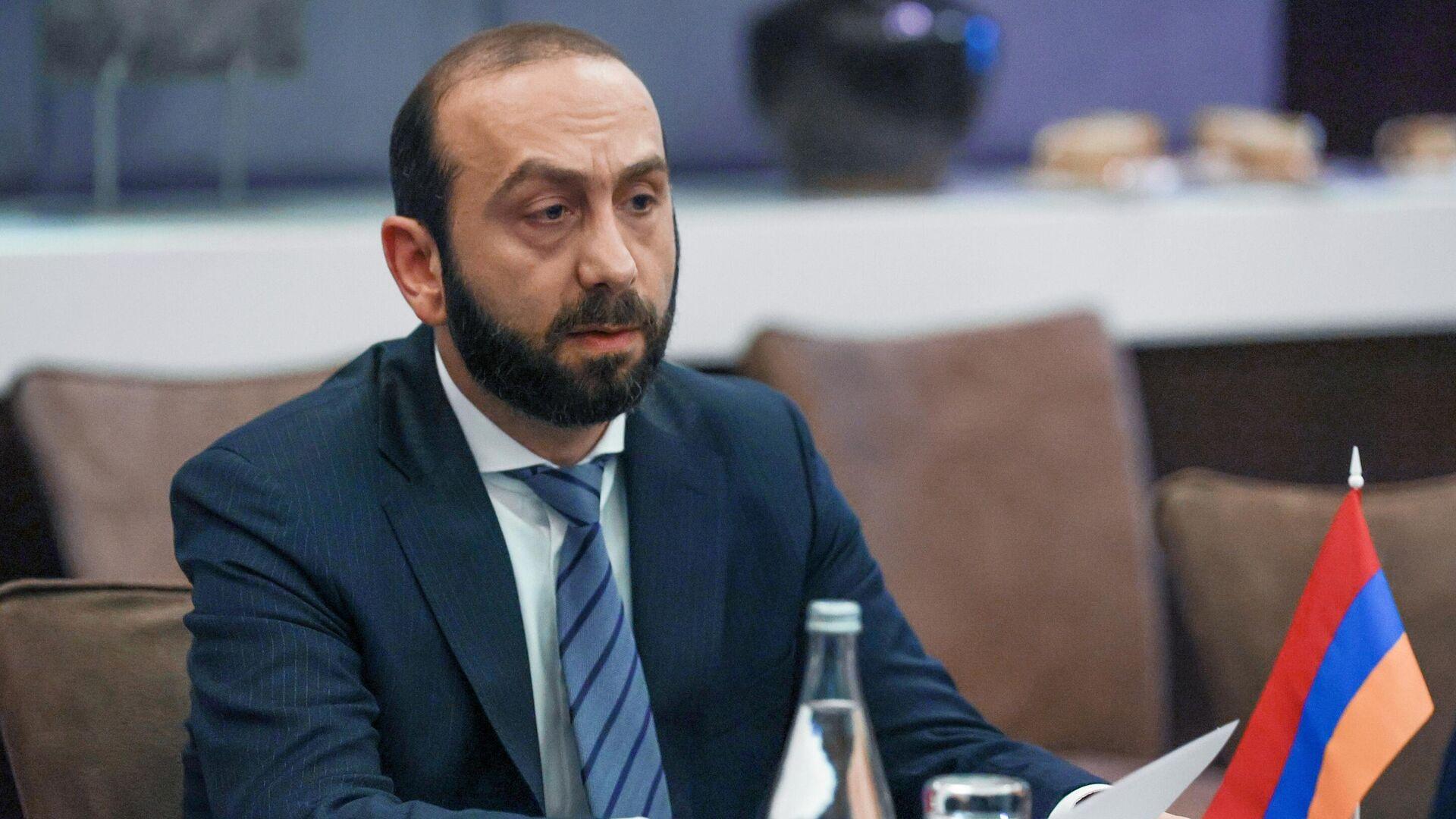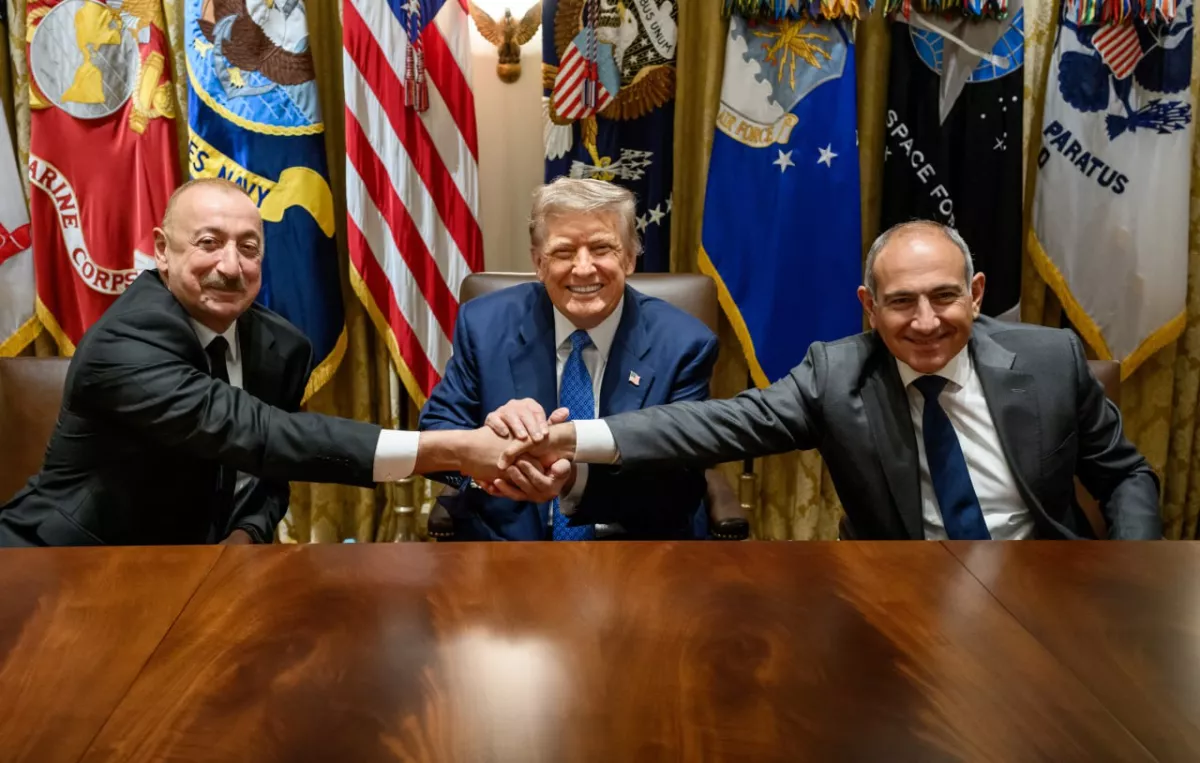Erosion of partnership Yerevan on Moscow’s role in the region
Last week, Armenian Foreign Minister Ararat Mirzoyan, in an interview with the Polish TV channel TVP World conducted during the Warsaw Security Forum, criticised Russia’s policy in the South Caucasus, accusing it of hypocrisy in the Armenia-Azerbaijan peace process.
In particular, when asked about Russia’s current role in the region and in ensuring Armenia’s security, the minister stated that Moscow only verbally supports the peace process in the region and the Washington Declaration, but in practice periodically criticises Armenia’s foreign policy harshly.
“On the official level, we heard welcoming statements from high-ranking Russian officials regarding the establishment of peace and the Washington Declaration. At the same official level, we also observed the willingness of high-ranking Russian representatives to support this interconnection project and to demonstrate some level of participation. However, of course, I cannot fail to note that almost every day we witness harsh criticism from the Russian media, sometimes state media, as well as members of parliament, experts, and politicians, of the Armenian government and the current foreign policy of our country,” Mirzoyan said, implying that Russian dissatisfaction with Armenia is linked to the pro-Western orientation of the current authorities.

Indeed, it is obvious that Yerevan’s overtures toward the West cause, to put it mildly, serious concern in Moscow. This is primarily linked to the weakening of Russia’s positions both within Armenia and across the region as a whole. It would be naive to expect that positive developments in the Armenia-Azerbaijan settlement achieved through the American track would elicit any enthusiasm from the Kremlin. That is the first point.
Secondly, while Moscow consistently expresses its commitment to peace in the region, it maintains that any Armenia-Azerbaijan normalisation should occur under Russian mediation. For instance, the Russian Foreign Ministry regularly emphasises that the groundwork for the Armenia-Azerbaijan settlement was laid in 2020 with Russia’s involvement. It is worth noting that Maria Zakharova, the official spokesperson for the Russian Foreign Ministry, stated that the meeting between the leaders of Azerbaijan and Armenia in the U.S. deserved a positive assessment. However, she also stressed that until recently, Baku and Yerevan had preferred to conduct dialogue directly, without external mediation.
It can be assumed that Moscow’s irritation over its mediation role in the Armenia-Azerbaijan negotiation process being sidelined is driven not only by Armenia’s turn toward the West but also by the rapprochement with the U.S. of two South Caucasus states simultaneously. Such a development represents a blow to the Kremlin's strategic interests in the region.
Furthermore, in the Armenian minister’s interview, his statement that the Armenian side is ready to sign a peace treaty as soon as possible is noteworthy.
“Peace, as I have already mentioned, has been established, but it requires constant care and daily effort from both sides,” the minister said, effectively confirming Prime Minister Pashinyan’s post-Washington thesis on “the importance of careful stewardship of peace with Azerbaijan.”

It is worth recalling that the Armenian leader told journalists at a briefing: “Yes, peace has been established, but that does not mean we have no questions or unresolved issues. Peace must be safeguarded.” He later reiterated this point at the congress of the Civil Contract party, specifically noting that over the past year and seven months, no soldier had been killed or wounded due to border shooting between Armenia and Azerbaijan.
“We must ensure that one year and seven months becomes two years and seven months, three years and seven months, 100 years and seven months, 200 years and seven months, and so on, and applies to all borders of the Republic of Armenia,” Pashinyan emphasised, drawing Armenian society’s attention to the fact that the republic has entered a completely new phase of its history thanks to the peace achieved with Azerbaijan following the Washington talks.
In other words, statements from the Armenian authorities indicate that official Yerevan is committed to implementing the Washington agreements and intends to move toward signing a peace treaty. However, for this to happen, the Armenian side must meet Baku’s key demand and amend its constitution to remove territorial claims against Azerbaijan. Judging by recent statements from Armenian leadership, Yerevan plans to achieve this through a referendum following the 2026 parliamentary elections.
The recent meeting between Nikol Pashinyan and President Ilham Aliyev in Copenhagen once again confirmed Yerevan’s steadfast plans regarding the Armenia-Azerbaijan settlement. Following the meeting, the leaders of both countries reaffirmed their readiness to continue working on further strengthening peace between the two nations. Notably, on the same day, 2 October, the Armenian parliament adopted a statement on establishing peace with Azerbaijan…








